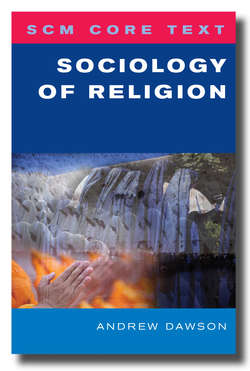Читать книгу SCM Core Text Sociology of Religion - Andrew Dawson - Страница 49
На сайте Литреса книга снята с продажи.
Conflictual society
ОглавлениеThe second of Marx’s formative insights concerns his conflictual view of society. As seen above, Marx believes human history to comprise the successive appearance of different kinds of society whose structures and processes are informed by the particular means of production from which they spring. Marx complements this portrayal of historical development by arguing that the different groups populating society do not enjoy equal access to the dominant means of production upon which their particular society is founded. The three most important things which flow from this assertion are: first, all societies in history have hitherto been unequal; second, society is characterized by different groups vying for access to and control over the prevailing means of production; and third, those groups in control of the means of production wield power and influence in ways which – as unintended consequences – result in society working to their benefit and to the detriment of others. Just as feudal society was characterized by a landed aristocracy whose control of the agricultural means production was transposed into political, social and cultural dominance over other groups (such as serfs and artisans), so capitalist society is characterized by a business- owning (bourgeois) elite whose control of the industrial means of production is transposed into dominance over other classes such as the proletariat and the petty-bourgeoisie.
Although not all sociologists accept Marx’s assertion that the ‘history of all hitherto existing society is the history of class struggles’ (McLellan, 1977, p. 222), many accept the basic contention that society is an unequal arena whose structures and processes serve the interests of some groups and work to the detriment of others. As will be seen in Chapter 6, Marx employs the notion of ‘ideology’ to explain how dominant groups not only wield and justify their influence but also manage to persuade dominated groups both to accept this influence and to act in ways which are not in their own best interests. Albeit by virtue of being subject to ideological domination, the oppressed are nevertheless complicit in their own subjugation. While Marx identifies a broad range of ideological currents, he regards religion as both a form of ideology par excellence and an ideal medium for the ideological machinations of the dominant elite. Believing religious ideas to originate in the material conditions of existence, Marx views the ideological unmasking of religion as a form of social critique. ‘The criticism of heaven is thus transformed into the criticism of earth, the criticism of religion into the criticism of law, and the criticism of theology into the criticism of politics’ (McLellan, 1977, p. 64).
